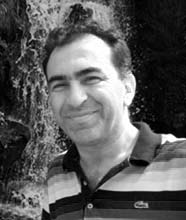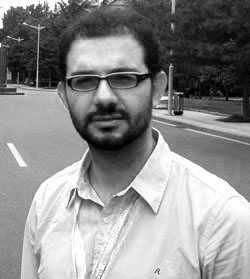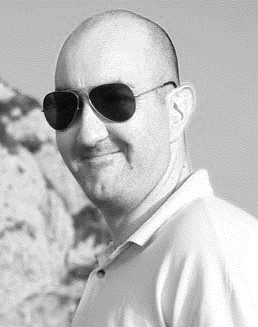Motivation Group



Παπαϊωάννου Α., Γούδας Μ., Διγγελίδης Ν.
Καθηγητής Καθηγητής Αν. Καθηγητής



Χατζηγεωργιάδης Α. Ζουρμπάνος Ν. Κρομμύδας Χ.
Αν. Καθηγητής Επ. Καθηγητής Προσωπικό Εργαστ.
Ενδεικτικές Δημοσιεύεις:
Papaioannou, A., & Hackfort, D. (2014). Routledge Companion to Sport and Exercise Psychology Global Perspectives and Fundamental Concepts. NY: Routledge
Papaioannou, A. (1994). The development of a questionnaire to measure achievement orientations in Physical Education. Research Quarterly for Exercise & Sport, 65, 11-20.
Papaioannou, A. (2006). Muslim and Christian students’ goal orientations in school, sport, and life. International Journal of Sport and Exercise Psychology, 4, 250-282.
Papaioannou, A., Marsh, H., & Theodorakis, Y. (2004). A multilevel approach to motivational climate in physical education and sport settings: An individual or group level construct? Journal of Sport & Exercise Psychology, 26, 90-118.
Papaioannou, A., Karastogiannidou, C., & Theodorakis, Y. (2004). Sport involvement, sport violence and health behaviours of Greek adolescents. European Journal of Public Health. 14, 168-172.
Hatzigeorgiadis, A. (2002). Thoughts of escape during competition: The role of goal orientation and self-consciousness. Psychology of Sport and Exercise, 3, 195-207.
Hatzigeorgiadis, A., & Biddle, S.J.H. (2002). Cognitive interference during competition among athletes with different goal orientation profiles. Journal of Sports Sciences, 20, 707-715.
Zourbanos, N., Papaioannou, A., Argyropoulou, E., & Hatzigeorgiadis, A (2014). Achievement goals and self-talk in physical education: The moderating role of perceived competence. Motivation and Emotion, 38, 235-251.
Cury, F., Biddle, S., Famose, J.P., Goudas, M., Sarrazin, P., & Durand, M. (1996). Personal and situational factors influencing intrinsic interest of adolescent girls in school physical education: A structural equation modelling analysis. Educational Psychology, 16, 305-315. 85.
Biddle, S.J.H., Akande, D., Armstrong, N., Ashcroft, M., Brooke, R., & Goudas, M. (1996). The self-motivation inventory modified for children: Evidence on psychometric properties and its use in physical exercise. International Journal of Sport Psychology, 27, 237-250. 86.
Goudas, M., Biddle, S., & Underwood, M. (1995). A prospective study of the relationships between motivational orientations and perceived competence with intrinsic motivation and achievement in a teacher education course. Educational Psychology, 15, 89-96. 87.
Goudas, M., Biddle, S., Fox, K. & Underwood, M. (1995). It ain't what you do, it's the way that you do it! Teaching style affects children's motivation in track and field lessons. The Sport Psychologist., 9, 254-264. 88.
Biddle, S., Cury, F., Goudas, M., Sarrazin, P., Famose, J.P., & Durand, M. (1995). Development of scales to measure perceived physical education classes climate: A cross-national project. British Journal of Educational Psychology, 65, 341-358. 89.
Theodorakis, Y., & Bagiatis, K, & Goudas, M. (1995). Attitudes toward teaching individuals with diasabilities: Application of planned behavior theory. Adapted Physical Activity Quarterly, 12, 151-160. 90.
Goudas, M., Biddle, S.J.H., & Fox, K.R. (1994). Achievement goal orientations and intrinsic motivation in physical fitness testing. Pediatric Exercise Sciences,6, 159-167. 91.
Goudas, M., & Biddle, S.J.H. (1994). Perceived motivational climate and intrinsic motivation in school physical education classes. European Journal of Psychology of Education, 9, 241-250. 93.
Goudas, M., & Biddle, S. (1994). Intrinsic motivation in physical education: Theoretical foundations and contemporary research. Educational and Child Psychology, 11, (2), 868-76. 94.
Goudas, M., Biddle, S., & Fox, K. (1994). Perceived locus of causality, goal orientations, and perceived competence in school physical education classes. British Journal of Educational Psychology, 64, 453-463. 95.
Fox, K.R., Goudas, M., Biddle, S.J.H., Duda, J., & Armstrong, N. (1994). Children's task and ego goal profiles in sport. British Journal of Educational Psychology, 64, 253-261. 97.
Παπαιωάννου, Α., & Γούδας, Μ. (1994). Η παρακίνηση στη φυσική αγωγή: Ενισχύοντας τα κίνητρα για μάθηση στη φυσική αγωγή και στον αθλητισμό. Αθληση και Κοινωνία, 8, 69-77. 98.
Goudas, M., & Biddle, S.J.H. (1993). Pupil perceptions of enjoyment in physical education. Physical Education Review, 16, 145-150. 99.
Ashford, B., Biddle, S.J.H., & Goudas, M. (1993). Participation in community sport centres: Μotives and predictors of enjoyment. Journal of Sport Sciences, 11, 249-256. 100.
Biddle, S.J.H., & Goudas, M. (1993). Teaching styles, class climate and motivation in physical education. British Journal of Physical Education, 24, (3), 38-39.
Digelidis, N., & Papaioannou, A., (1999).Age-group differences in intrinsic motivation, goal orientations and perceptions of athletic competence, physical appearance and motivational climate in Greek physical education.Scandinavian Journal of Medicine & Science in Sports, 9, 375-380.
Digelidis N., Papaioannou A., Laparidis K. & Christodoulidis T. (2003). A one-year intervention in 7th grade physical education classes aiming to change motivational climate and attitudes towards exercise. Psychology of Sport and Exercise, 4, 195-210.
Digelidis, N., Della V., & Papaioannou, A., (2005). Students’ Exercise Frequency, Self-Perceptions, Goal Orientations and Perceived Motivational Climate in Physical Education Lesson. Italian Journal of Sport Sciences, 12, 155-159.
Digelidis, N., Karageorghis, C.I., Papapavlou, A.J., & Papaioannou, A.G., (2014). Effects of Asynchronous Music on Lesson Satisfaction and Pupils’ Intrinsic and Extrinsic Motivation at the Situational Level. Journal of Teaching in Physical Education, 33, 326 – 341.
Christodoulidis T., Papaioannou A., & Digelidis N. (2001). Motivational climate and attitudes towards exercise in Greek senior high school: Α year-long intervention. European Journal of Sport Science 1, 2-11.
Papaioannou A., Theodosiou A., Pashali M., & Digelidis N. (2012). Advancing Task Involvement, Intrinsic Motivation and Metacognitive Regulation in Physical Education Classes: The Self-Check Style of Teaching Makes a Difference. Advances in Physical Education, 2, 110-118.
Tessier D., Smith N., Tzioumakis Y., Sarrazin P., Quested E., Sarazzin P., Papaioannou A., Digelidis N.,& Duda J. (2013). Comparing the objective motivational climate created by grassroot soccer coaches in England, Greece and France. International Journal of Sport and Exercise Psychology, 1-19.
Jaakkola T., & Digelidis N. (2007). “Establishing a Positive Motivational Climate in Physical Education ”. In: Liukkonen J., Theodorakis I. (Eds), “Psychology for Physical Educators” (pp 3-20), Champaign, IL: Human Kinetics Publishers.





